How to Count Calories – and Does It Work?
Counting Calories
How to do it and does it work?
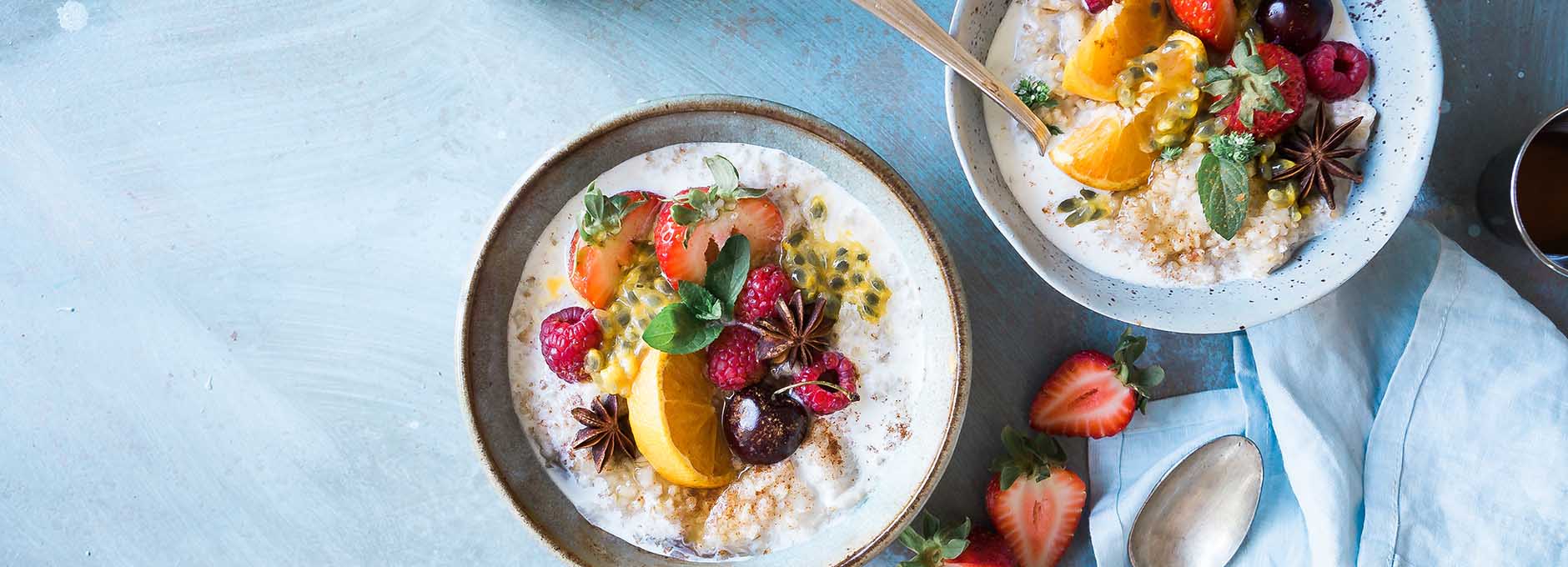
Losing weight requires you to take in less calories than you burn. The problem is that keeping track of calories and understanding how many you’re taking in can be difficult. On the surface, that might not sound hard, but it can be very tricky. Some calories are hidden, for example in drinks, and some foods contain more than you might think.
This is where calorie counting comes in. It can help you manage your intake much more easily, in turn, helping you to lose weight. Let’s take a look at how it’s done.
What are calories?
The amount of energy in a piece of food or a drink is measured in calories1. How many you need is determined by your age, height, weight and activity levels. But, on average, men need around 2,500 and women 2,000.
Your body uses these calories for essential functions, including breathing, brain function and walking. Energy is also required to digest food, known as thermic effect, with protein having the highest.2
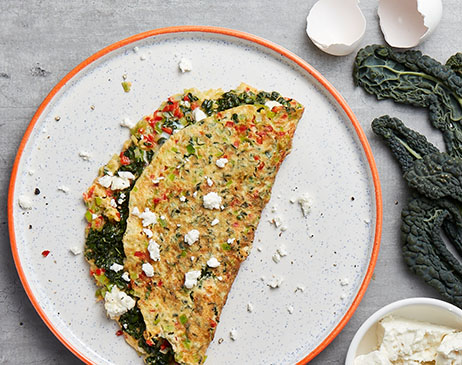
Why are they important for weight loss?
Any excess calories you eat, i.e. eating more than your body needs and burns, will be stored as fat. This leads to weight gain over time.
On the flip side, being in a moderate calorie deficit will assist in weight loss efforts, as your body will turn to fat reserves for energy. Bear in mind it’s still essential to nourish your body. Failure to do so will cause a lack of concentration, over-tiredness and even muscle loss.3 This could also cause your metabolism to slow down, meaning your body will burn less calories. Plus, you’ll find you’re likely to give up on your diet much earlier, or fail to sustain any weight you lose. In short: it’s a lose-lose.
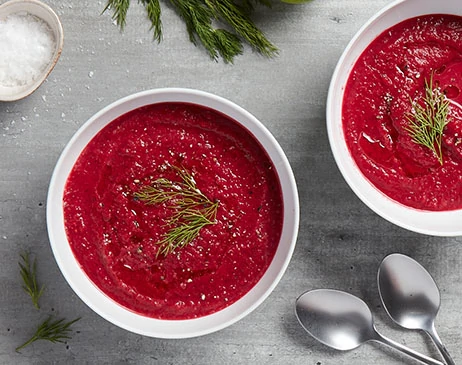
How many calories do I need?
First step – working out how much your body needs. Every person is individual, with specific requirements. As mentioned, how many calories you need depends on a number of factors.
A calculator can help you estimate how many calories your body needs a day. To lose weight, slightly reduce this amount.
For example, if your body needs 2,000 calories a day, reduce this to 1,800 to lose weight over time. This should be done through a combination of eating less and exercising more. There are a number of exercises that can help you lose weight, but it will largely depend on cutting calorie intake.
Does calorie counting work?
Calories counting will help you get a handle on how much you’re eating, ensuring you can take the right steps to reduce your intake. For many, it’s been a useful tool in weight loss, widely held as a time-tested method.4
However, it’s important to also eat right. While ‘a calorie is a calorie’ might be true, you also need to ensure quality. Foods high in protein, or vitamin-rich foods such as fruits and vegetables, will keep you feeling fuller for longer, helping to make sure you eat less. You need to fuel your body with the right foods, not high-sugar snacks that will cause energy crashes.5
Some diets, such as the ketogenic diet, have given some people the opinion that it’s certain food groups that hold the key to weight loss. This is why many choose to cut out carbs in a bid to lose weight. However, while cutting back on refined carbs is a good idea, the secret behind weight loss is being in a calorie deficit, there’s no way around that. Many who completely cut out food groups find that they gain the weight back once they reintroduce them.
How to count calories
One of the easiest ways to lose weight is through a calorie tracker, often in the forms of apps. These work by allowing you to search for or scan barcodes of foods you’ve eaten and log them in a daily food diary. They will also count sugar intake, plus other stats like protein and fibre count. This can give you full visibility over what you’re eating and how much – if you log it all correctly.
If this method isn’t for you, the NHS have their own calorie checker, with over 150,000 different food and drinks. It also gives you calorie estimates for common ingredients used when cooking from scratch. This is handy as it’s advisable to do more home cooking when trying to lose weight, as you can control what’s in your meals.
Another way to do it is through visual guidelines. For example, your palm decides the size of your protein portion (e.g. meat or fish), your fist is a good indicator for vegetables and your thumb decides your fat portions.6 Note that these are estimates, they won’t be as accurate as precise calorie counting, but can be a useful guide when it comes to portion sizes.
Benefits of calorie counting
So, why bother? Some of the benefits of counting calories include:
- It helps you identify eating patterns that need modifying
- Some of the calorie amounts will surprise you, ensuring you’re more clued up about what you’re putting in your body
- You’ll be more aware of what you’re eating
- It helps you control your portions
- It makes you accountable for daily choices
- It motivates you
- It monitors your eating behaviours
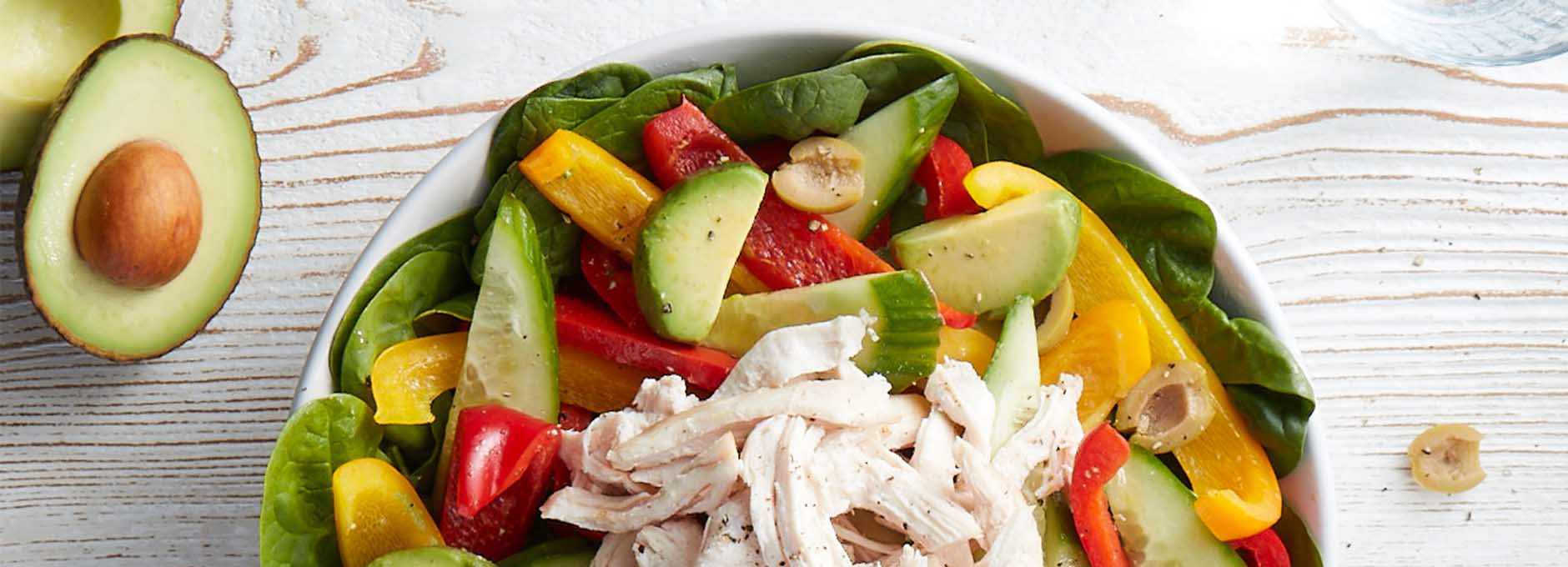
Calorie counting diet tips
To help you control calorie intake, here are some top tips:
- Use scales to determine how much you’re eating
- Don’t forget to track the ‘little’ things, such as oil for cooking. These can add up!
- Track your food after every meal to avoid forgetting stuff and improve accuracy
- Plan meals ahead of time
- Use measuring cups
- Read the packaging closely – sometimes the calories shown aren’t for the usual serving size (e.g. only one half of it)
- Try not to pour or measure things, such as oil, ‘by eye’ – you might be consuming more calories than you realise
- Track your drinks as well
How to eat fewer calories
Of course, calorie counting alone isn’t enough. While it will help you understand how much you’re eating and allow you to make informed choices, you need to reduce portion sizes and snacking frequency.
Sound easier said than done? We’ve got some advice:
1.Go for healthy volume
Aim to eat more high-volume, low-calorie foods, such as vegetables. These are not only essential for eating healthily, but will help curb your appetite while keeping you full. Aim for half your plate to be vegetables.
On the reverse, avoid calorie-dense foods, which have a high energy amount relative to serving size (e.g. sugary sweets and fried food).
2. Eat a high-protein diet
Protein is king when it comes to losing weight. The reason? Let us count the ways:
- Satiating
- Highest thermic effect (compared to carbs and fats)
- Reduces hunger hormone
- Cuts cravings
- Reduces desire to binge or snack late at night
- Boosts metabolism
- Prevents muscle loss7
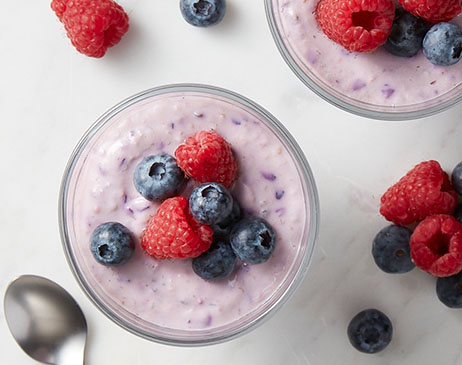
3. Get rid of temptation
Out of sight, out of mind – it works. Remove any temptation, such as junk food or sugary snacks, from your house. If it’s not there you can’t eat it, right? Instead, stock up with healthy snacks and plenty of fruit, nuts and seeds.
4. Slow and steady wins the race
It can be tempting to dramatically reduce your calories in a bid to lose weight faster. This is a trap many dieters fall into. Unfortunately, it won’t result in sustainable weight loss. Aim for a moderate calorie deficit, as it’s much easier to stay on track this way8.
5. Do more exercise
Exercise is essential for a healthy mind and body. Another bonus? It will help you maintain a calorie deficit. Aim to work out at least 3 times a week. Plus, if you take up strength training, you’ll build muscle, which will boost your metabolism – helping you burn more calories.
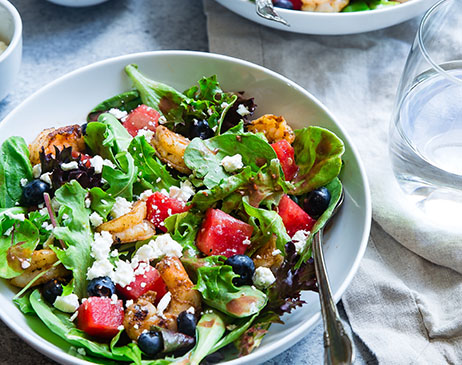
6. Don’t drink your calories
Alcohol, sugary drinks, fruit juices… What do they all have in common? They can contain a number of hidden calories, which can sabotage your efforts to lose weight and stay in a deficit.
7. Fill up on water
Drinking more water can help curb your appetite, fill you up, and improve digestion. Aim for 6-8 glasses a day9, increasing this due to factors such as exercise or hot weather. Water should never be used as a meal replacement, but it’s an essential part of losing weight.
8. Cut back on refined carbs
While cutting out entire food groups can be detrimental, reducing your intake of refined carbs is a good idea. This includes sugar-laden snacks and white bread, for example. Not only are they calorie-dense, but they also cause energy crashes. Aim for slow-release energy carbohydrates instead, such as whole grains.
9. Eat off smaller plates
Eating off smaller plates tricks your body into thinking you’re eating more10. On a smaller plate compared to a larger one, the same amount of food will look bigger.
After all, a half-empty plate won’t look satisfying, and you’ll be tempted to fill it. Often, the smaller the plate, the smaller the portion.
10. Swap nights out for nights in
When someone else cooks for you, be it a friend, restaurant or your favourite takeaway, you have no idea how your food has been prepared or what’s in it. There can be many hidden calories in the oil used, for example.
So, instead, opt to make most of your meals at home, fresh. You can also meal prep in advance to ensure you have plenty of healthy options to help you to lose weight.
It’s not just about calories
While calorie counting can be a useful tool to help you lose weight, health is top of the priority list. You need to ensure you’re eating right; 100 calories of vegetables will be more beneficial to your body than 100 calories of chocolate. Remember: it’s not all about numbers.
Also, bear in mind that while calorie counting has helped many lose weight, it’s not for everyone. So, if it’s not working, don’t be afraid to try something else. There are many other methods to lose weight out there, you just need to find what suits you best.